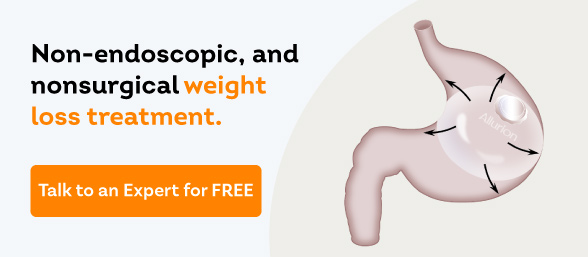![]() Views: 393
Views: 393
How Much Weight Loss Is Concerning?
While losing a lot of weight may seem exciting to most people, you should know that it could also indicate health issues and can bring more harm than good. We’ll further discuss what weight loss is, how it works, and how much weight loss is considered concerning. .
Dedicated Support at Every Step!
Our Doctors are available 24 hours a day, 7 days a week to help you!
Call Us6366-526-937Table of Contents
Introduction
No Cost EMI, Hassle-free Insurance Approval
What is Weight Loss?
In medicine, weight loss refers to losing body weight or a reduction in body mass. It can be natural or intentional. Natural, unintentional weight loss can occur due to a variety of factors, including improper eating habits, diseases including thyroid, heart issues, type 2 diabetes, or stress. On the other hand, intentional weight loss includes reducing weight using different methods, including dietary modification, exercising, or surgery to achieve healthy body weight and combat issues such as obesity.
How Much Weight Loss is Concerning?
According to experts, in the case of intentional weight loss, losing 1 to 2 pounds in a week is considered a healthy rate of weight loss. If you force yourself to lose more than this (unless an expert has suggested it), you may be putting yourself at risk of various health issues, including malnutrition, muscle loss, gallstones, a drop in metabolism, etc.
When it comes to unintentional weight loss, losing 5 to 6% of your total weight in a year is considered concerning and could indicate issues with your health, which we will discuss further.
What Could Sudden Unintentional Weight Loss Indicate?
Sudden or unintentional weight loss can happen due to a variety of factors and may hint towards certain health issues. These issues can range from mild to serious, so it is important to understand why you’re losing weight and what it could indicate. If you’re noticing a drop in your weight without trying to lose it, it may be because:
- There are issues with your digestive system. Problems with digestion may include irritable bowel syndrome, coeliac disease, etc.
- You have health conditions such as type 2 diabetes, an overactive thyroid, or heart failure. Sometimes, sudden weight loss can also indicate cancer.
- You have mental health conditions such as eating disorders, anxiety, depression, obsessive-compulsive disorder (OCD), etc.
- You aren’t eating enough throughout the day, consistently.
An unintentional drop in weight is almost always concerning, and individuals experiencing it shouldn’t take it lightly. Make sure you see a doctor in time and get checked for any underlying conditions that may be causing weight loss.
In the case of intentional weight loss, shedding a lot of weight in a short span may be a cause of concern. It could indicate that you are resorting to unhealthy weight loss methods or aren’t following the suggested guidelines. This can also be concerning and may lead to certain health issues.
Lose Weight in a Healthy Way
There are several ways of losing weight, ranging from healthy to unhealthy. But you can only reap the benefits of your weight loss efforts if you lose the right way. To be able to do that, you must know what’s a healthy way of losing and what’s not. While fad diets, weight loss supplements, or spending hours in the gym may seem effective ways of losing weight, they aren’t the healthiest. So, to help you achieve your weight loss goals while maintaining your overall health, we have curated some healthy weight loss methods in the list below:
Healthy Diet Equals Healthy Weight Loss
Make sure you keep a check on what you’re eating throughout the day to ensure that you lose in a healthy manner. Include more fiber and protein in your diet, and keep a check on your carb intake. Restrict your intake of refined carbs. Also, make sure your meals are balanced and the proportions are correct.
Exercise Your Way To Your Desired Body Weight
Don’t skip your workouts. Indulge in a 30 to 40-minute workout session every day. Make sure your workout routine consists of a combination of cardio exercises and strength training. You can also try High-Intensity Interval Training or HIIT. Additionally, you must remain active throughout the day. Some stretching and short walks at regular intervals throughout the day can also aid weight loss.
Non-Invasive Gastric Balloon Treatment
If you’re looking for a modern solution for weight loss, you can avail of the Allurion Gastric Balloon treatment at Pristyn Care. This is an advanced weight loss technique, which is non-invasive, i.e., it does not require surgery. This procedure can help patients reduce 15% of their total weight in just 16 weeks of the day of the procedure.
In this technique, the patient is asked to swallow the Allurion capsule. The capsule is then filled with saline water, which causes it to inflate into a balloon. The balloon takes up space in the stomach and makes the individual feel fuller, thereby reducing their appetite and restricting the amount of food they consume. The balloon deflates on its own in 16 weeks and exits the body. To know more about this weight loss treatment, you must reach out to Pristyn Care’s experts. Contact our care coordinators to schedule your appointment with our general surgeons.
Surgery For Weight Loss
Weight loss or bariatric surgeries are also a great way of losing excess body weight in a healthy manner. They allow the body to shed the excess weight gradually and prevent sudden weight loss and its associated complications. Weight loss surgeries are generally suggested when other methods fail. The most commonly performed weight loss surgeries include gastric bypass surgery, sleeve gastrectomy, and gastric banding. All these surgeries include alteration of the digestive system to limit the consumption of food and promote weight loss.
At Pristyn Care, we have a team of the most experienced bariatric surgeons who are extensively trained in performing traditional and advanced weight loss surgeries with precision. To consult our surgeons, contact our care coordinators and book your appointment now.
All In All,
Being aware of how much weight loss is considered unhealthy or concerning can keep you safeguarded against potential health conditions. Additionally, it can help you get a diagnosis for any underlying health conditions that may be causing you to lose weight without wanting to. On the other hand, if you wish to lose weight, understanding how much weight loss can impact your health negatively can help you set realistic goals and lose weight in a healthy manner.











